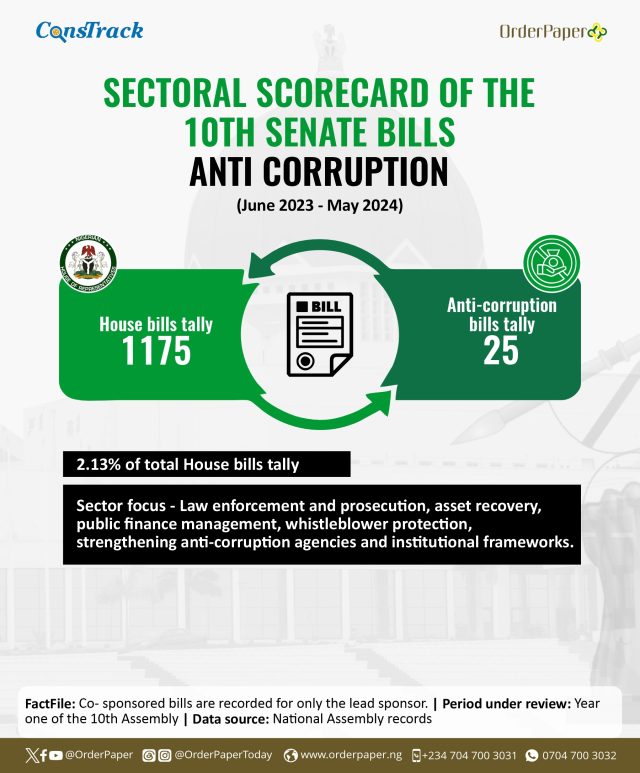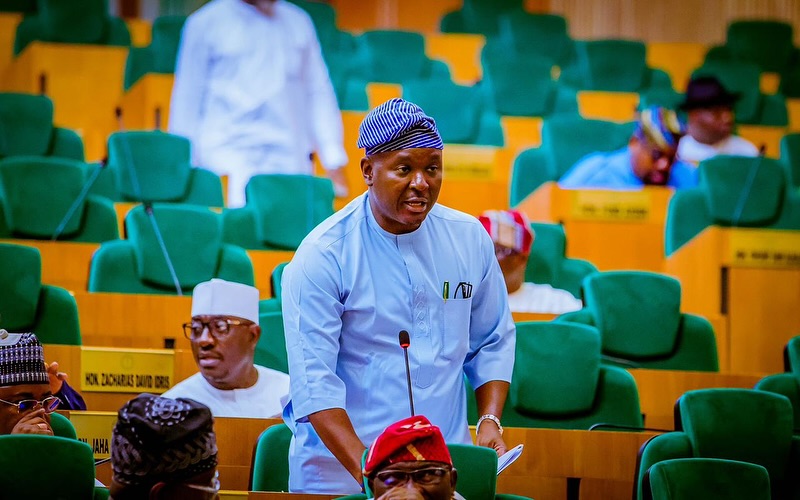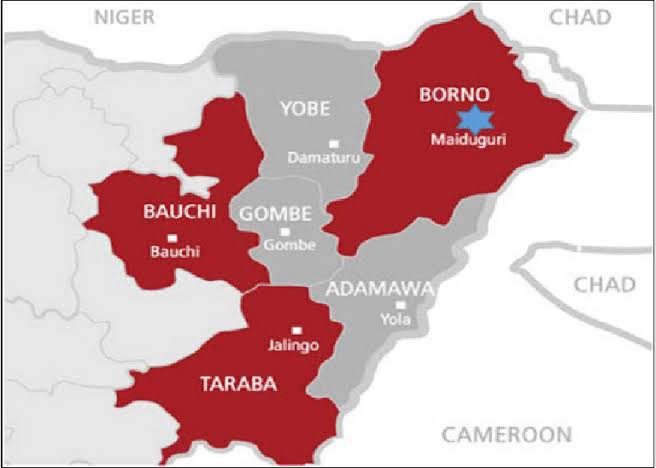The House of Representatives introduced 25 bills in its first year aimed at enhancing anti corruption practices.

It can be argued that Nigeria has made notable progress in its fight against corruption in recent years, implementing various strategies and initiatives to tackle this prevalent issue. Despite these efforts, corruption remains a significant challenge that continues to impede economic development and erode public trust in government institutions.
To address this, the 10th federal legislative body sponsored 25 anti-corruption bills in its first year, which accounted for 2.1 percent of the total bills considered. These proposals targeted vital areas such as law enforcement and prosecution, asset recovery, public finance management, whistleblower protection, and the strengthening of anti-corruption agencies and institutional frameworks.
Previous interventions on anti-corruption
Nigeria has established a legal and institutional framework to combat corruption, including the Independent Corrupt Practices and Other Related Offences Commission (ICPC) Act and the Economic and Financial Crimes Commission (EFCC) Act. These laws empower the ICPC and EFCC to investigate and prosecute corruption cases effectively.
Additionally, the government has introduced the Treasury Single Account (TSA) system, which consolidates all government revenues into a single account to enhance transparency and minimize opportunities for mismanagement. Nigeria’s commitment to the Open Government Partnership (OGP) initiative further underscores its dedication to promoting transparency and accountability in governance.
READ ALSO: 10THNASSREPORTCARD: 13 anti-corruption bills sponsored in senate
Challenges
Despite these advancements, Nigeria’s anti-corruption efforts face significant challenges some of which include resistance to reforms among some political elites, weak enforcement of laws, and a lack of political will which have hindered the effectiveness of these measures. Corruption remains prevalent in various sectors and government parastatals.
Additionally, the disconnect between the rhetoric of anti-corruption among state actors and their actions has eroded public confidence in the government’s commitment to fighting corruption. The judiciary, which plays a crucial role in this battle, has also been criticized for contributing to the problem rather than providing solutions.
Way forward
To effectively combat corruption in Nigeria, a multi-faceted approach is essential. Key steps to achieve this include:
- Enhancing the enforcement of anti-corruption laws and ensuring successful prosecution of high-profile cases.
- Improving transparency and accountability in public procurement processes to reduce vulnerability to corruption.
- Fostering better coordination among agencies fighting against corruption for a more effective response to corrupt practices.
- Promoting public ownership of the anti-corruption movement by involving citizens, civil society organizations, and the private sector.
- Encouraging a change in societal attitudes that currently celebrate wealth acquired through dubious means while rewarding integrity and ethical behavior.
By addressing these challenges with a comprehensive anti-corruption strategy, Nigeria can make substantial progress in combating corruption and establishing a more transparent and accountable governance system.
10th NASS Report Card: Read up on the performance of other senators and members of house and other specialized categories here



